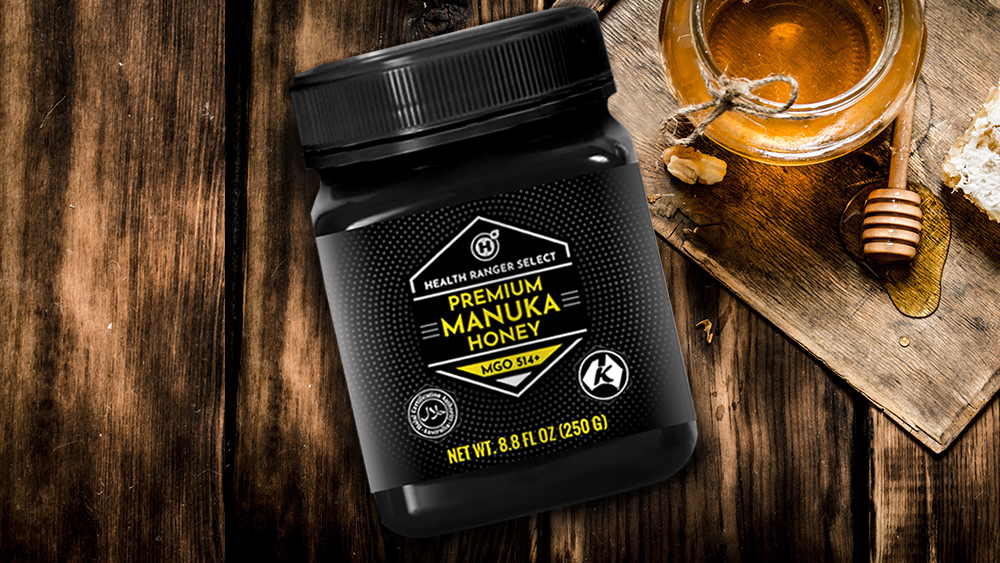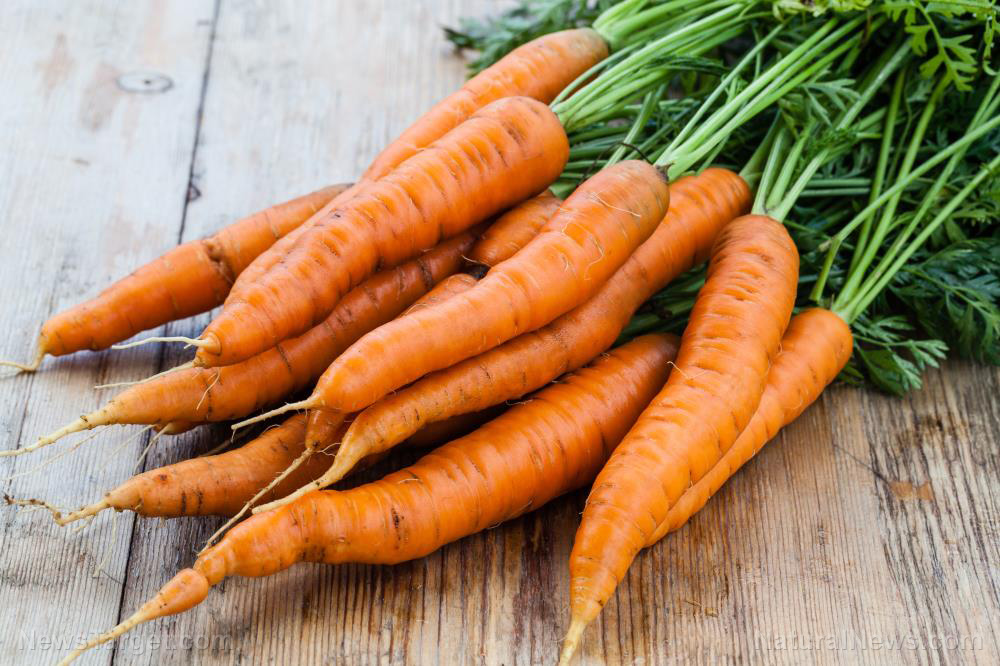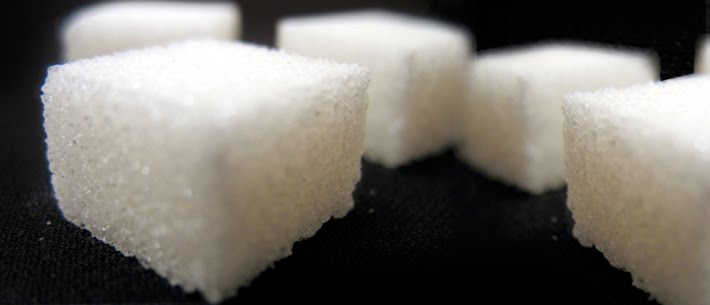Why monk fruit is the best sugar substitute yet discovered
04/04/2018 / By Derek Henry
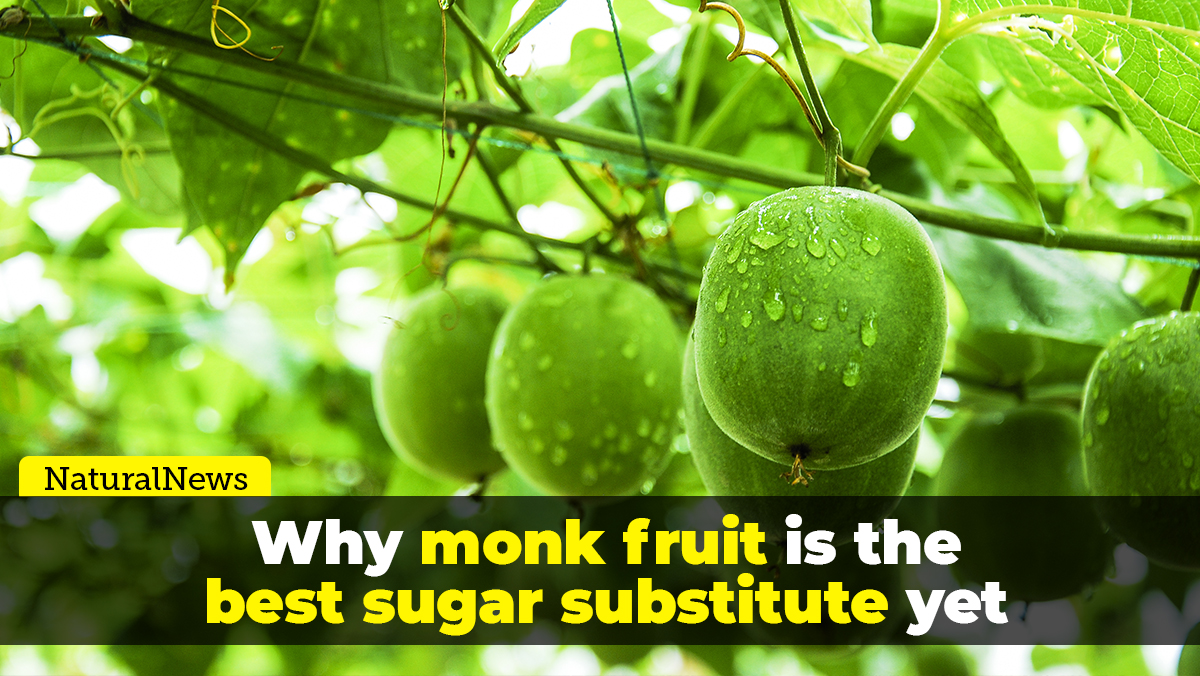
It may be an understatement to say there is a large scale sugar addiction in the world today. It seems we like everything sweeter, and are willing to overlook the health consequences to satisfy our sweet tooth.
Back in the early 1800’s, the average American consumed about 9 grams of sugar a day. Fast forward to today, and we find that number has increased to 82 grams per day, with children and adolescents getting about 16 percent of their daily caloric intake from added sugars alone. The American Heart Association (AHA) recommends no more than 25 grams of added sugar a day for women, 38 grams for men, and between 12 and 25 grams for children (depending on age) per day.
Added sugar consumption has clearly become a big problem and carries many health risks, especially with recommended dosages being doubled, and in some cases, children are consuming up to seven times more than the daily allowance. This is why sugar has been labelled as more addictive than cocaine, and you can see nine reasons why sugar is considered more dangerous, here.
These sobering statistics show there is clearly a need to satisfy the sweet tooth of Americans through a healthier alternative, and quick. Perhaps a Buddhist monk’s discovery from the early 13th century can offer a solution of biblical proportions to end the health epidemic related to our current sugar zealotry.
Monk fruit – everything you want in a sweetener and nothing you don’t
Ideally, when looking for a healthier sweetener, you look for something that is naturally occurring and has proven health benefits. For these reasons alone, you can immediately rule out artificial, man-made sweeteners that go under names like aspartame, Splenda, Sweet N’ Low, saccharin, AminoSweet, sucralose, and Truvia, just to name a few. They are arguably worse than refined sugar itself.
You also don’t want a sweetener that spikes your blood sugar, or adds relatively empty calories, like maltodextrin, glucose, corn syrup, refined table sugar, pasteurized honey, evaporated cane juice, and agave syrup.
Finally, you also want a sweetener to taste sweet, not bitter, which can happen with some other natural, low calorie sweeteners like stevia extract.
Good news – the monk fruit, also known as “luo han guo,” answers the bell on resolving all these concerns with artificial and natural sweeteners. A small green melon originally grown in southern China that was named after monks who harvested the fruit, this legendary sweetener has been referred to as the “longevity fruit,” which gives a glimpse into how different it is than most other sweeteners. [To learn more about other powerful fruits, visit Fruits.news.]
Since it spoils quickly after picking, the best method of use for those not able to access it directly is in a dried extract. This doesn’t make it any less favorable as a sugar substitute though. Take a look at the benefits of monk fruit extract as a natural and healthier sweetener:
- Naturally contains almost no calories
- Is 300 times sweeter than cane sugar, which doesn’t come from natural sugars, but powerful antioxidants
- Has a negligible effect on blood sugar
- Contains no bitter aftertaste
- Is high in a powerful antioxidant known as mogroside.
- Supports weight loss plans
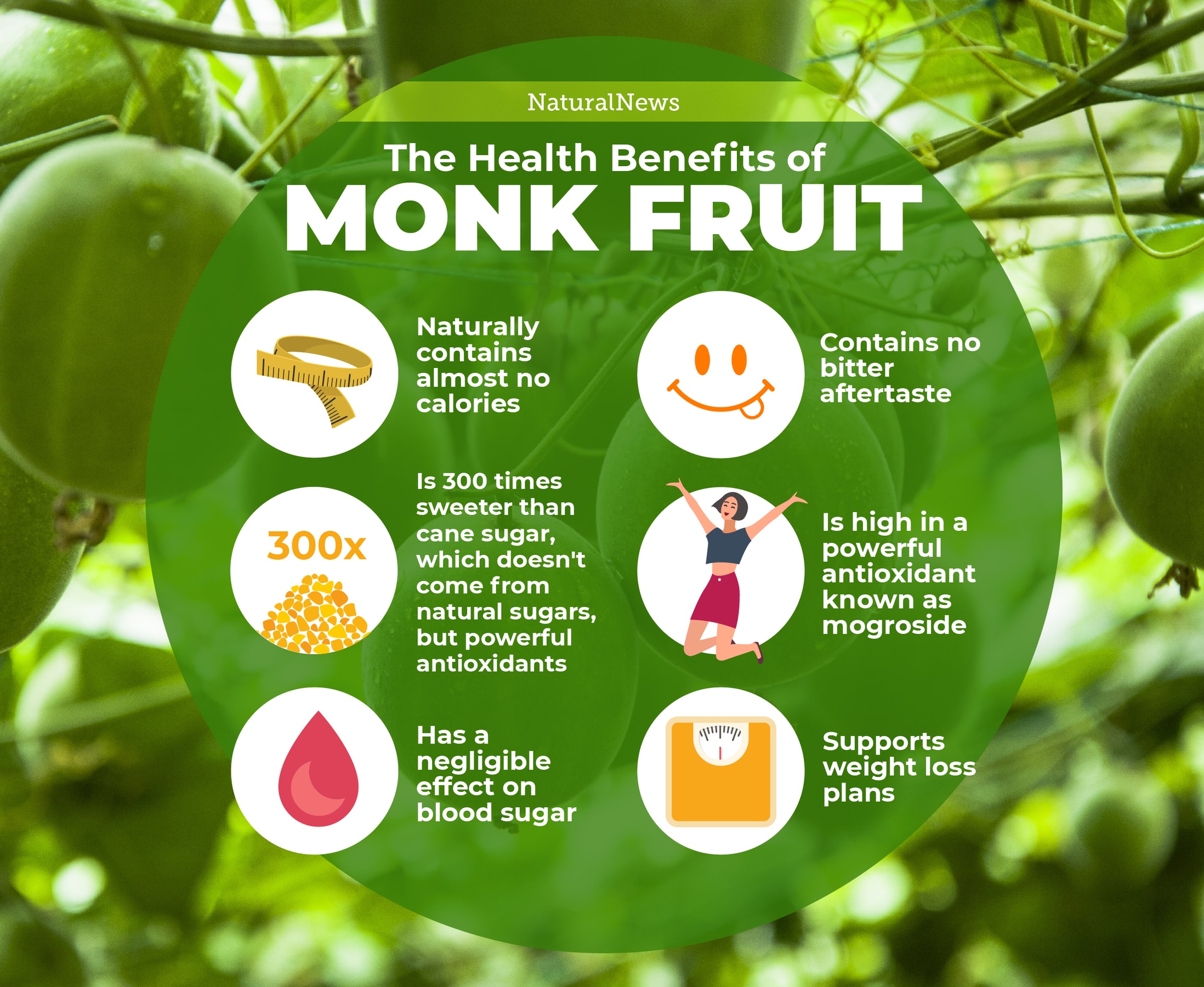
What can you use monk fruit in? Practically anything you may use other sweeteners for right now! Put it in your tea, coffee, smoothie, yogurt, oatmeal, or healthy desserts.
For monk fruit, a little extract goes a LONG way. Just a 1/4 teaspoon has the equivalent sweetness of 1.5 cups of sugar, so a pinch is all you really need for most cases. In fact, with the Health Ranger’s Monk Fruit Extract Powder – Low Carb Sugar Substitute, you get a highly potent concentrate with 50 percent of it made from “mogroside V,” which is the sweetness factor and antioxidant present in monk fruit, at the highest concentration you can get.
You can get the Health Ranger’s Monk Fruit Extract – Low Carb Sugar Substitute, here.
This is all great news of course, and perhaps this ancient fruit can lead to new traditions that involve less sugar, and the world can come off its sugar high and settle into a much healthier life without it.
Sources include:
Tagged Under: disease causes, disease prevention, fast food, food supply, fruits, ingredients, luo han guo, monk fruit, natural solutions, natural sweeteners, slender, sugar, sugar addiction, sugar substitute, Super Food, sweeteners






